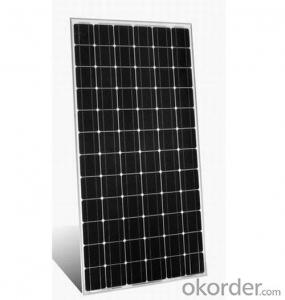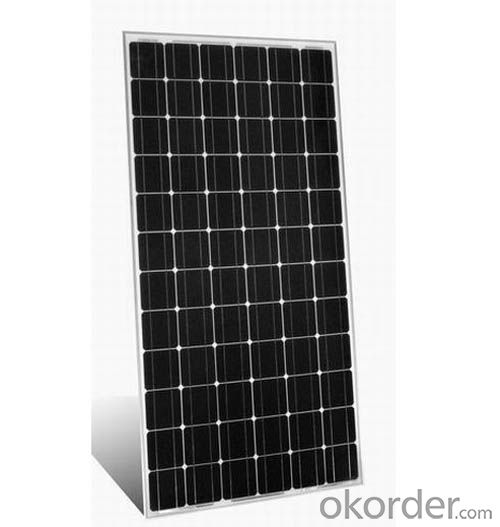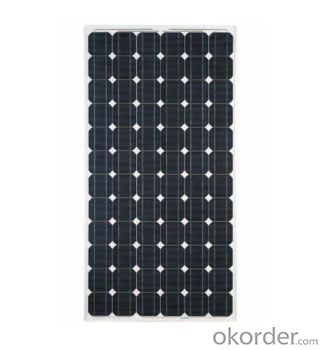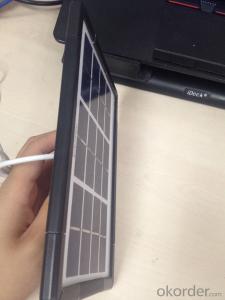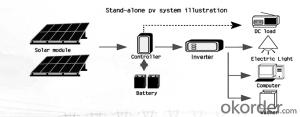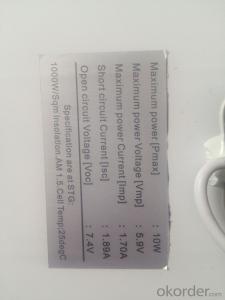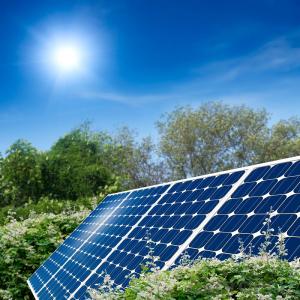Mono-Crystalline Solar Panels for Farms - 72 Series
- Loading Port:
- Ningbo
- Payment Terms:
- TT or LC
- Min Order Qty:
- 2000 watt
- Supply Capability:
- 2000000 watt/month
OKorder Service Pledge
OKorder Financial Service
You Might Also Like
1. 72 Series Monocrystalline Solar Module
OKorder is offering high quality 72 Series Monocrystalline Solar Modules at great prices with worldwide shipping. Solar modules are the core of solar power systems and our Monocrystalline solar modules consist of highly efficient crystalline silicon solar cells, premium white cloth grain toughened glass, EVA, transparent TPT backboard and a composite aluminum alloy frame. These Monocrystalline solar modules are perfect for converting solar energy into electric energy, or charging storage batteries.
2. The intended use of 72 Series Monocrystalline Solar Module
Our 72 Series Monocrystalline Solar Modules are ideal for:
Power generation
Lighting
3. The advantages of 72 Series Monocrystalline Solar Modules
Not only are OKorder's 72 Series Monocrystalline Solar Modules of the highest quality and reliability, we are able to quickly ship orders within 20 days of receiving a deposit or original L/C.
4. Main features of 72 Series Monocrystalline Solar Modules
Extended service life
Durable strength and compression resistant
High energy conversion efficiency
Reliable performance
5. Mono-crystalline solar module Images
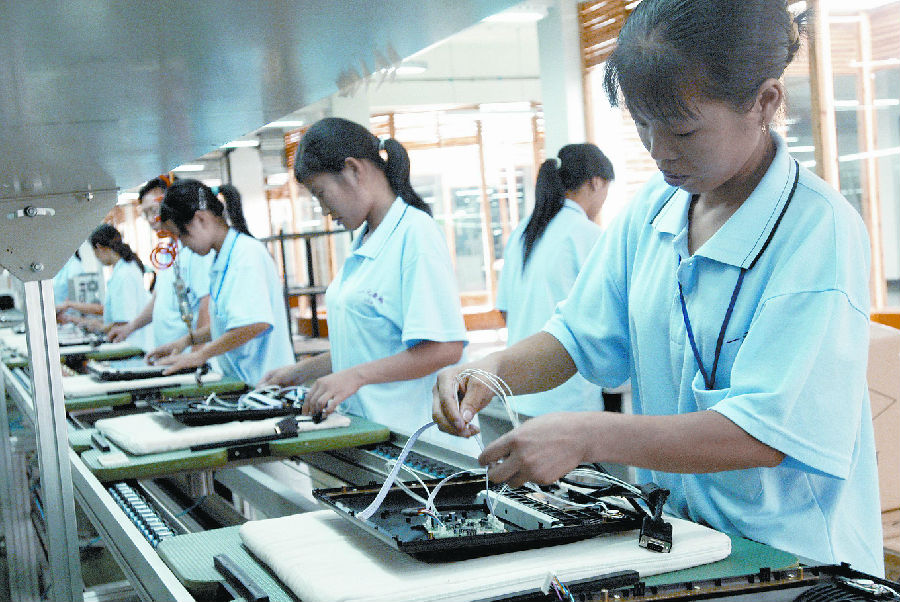
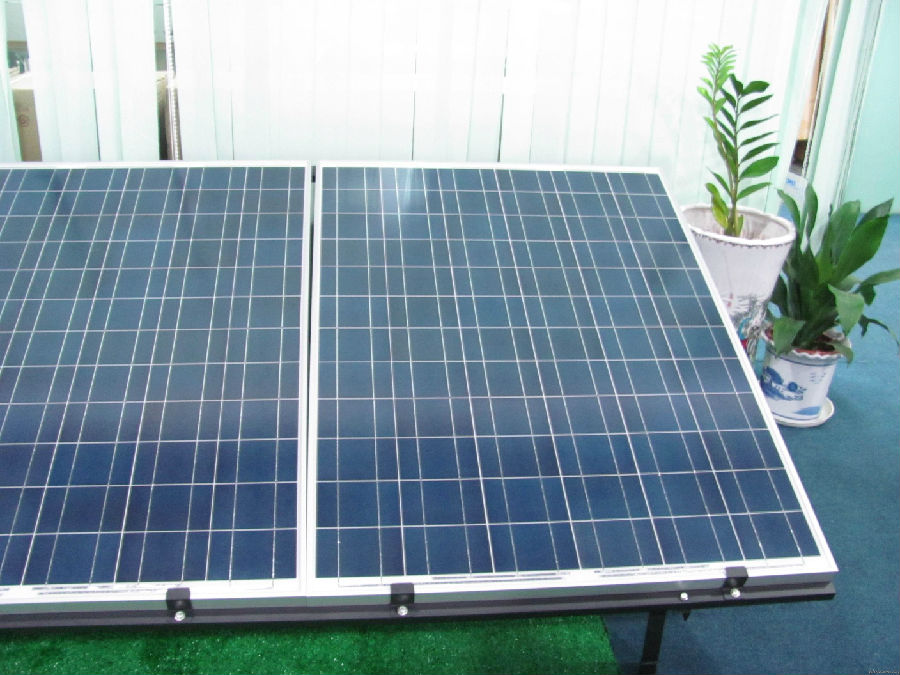
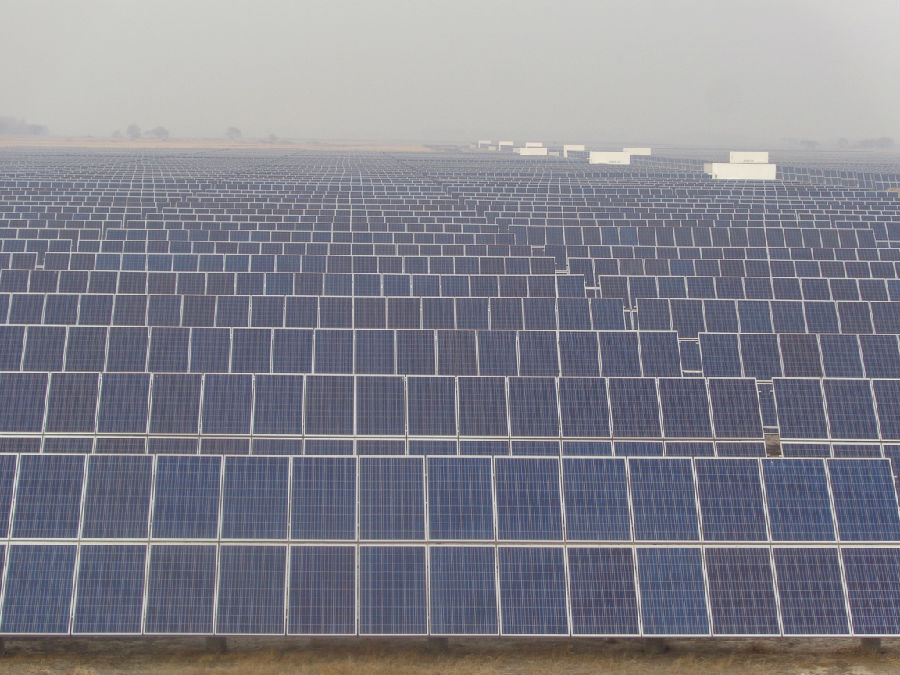
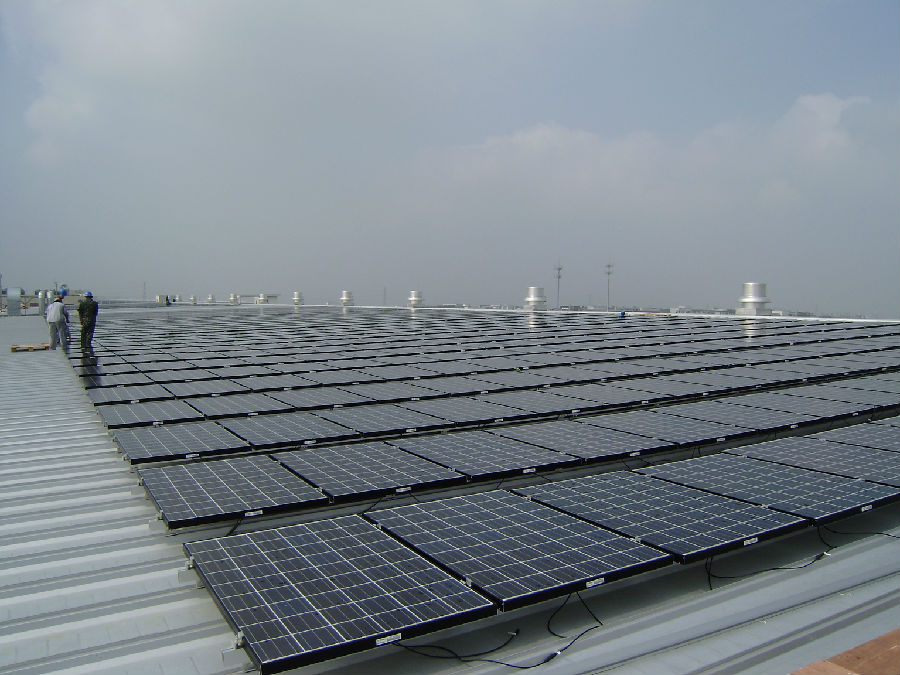
6. Certificates of Mono-crystalline solar module
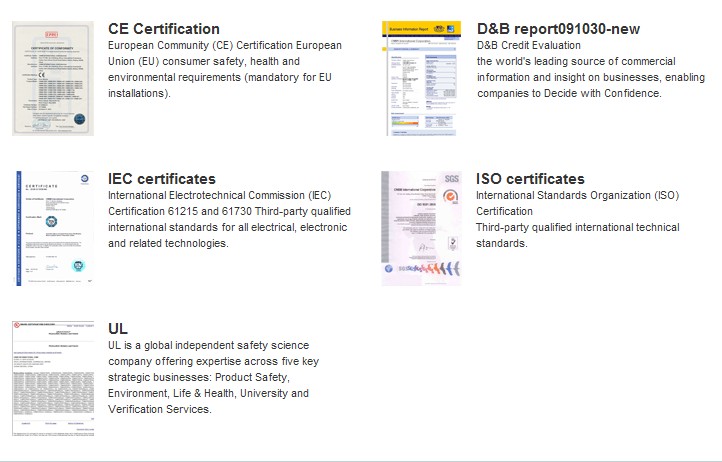
7.Specification:
1) Mono-crystalline solar module mechanical parameter
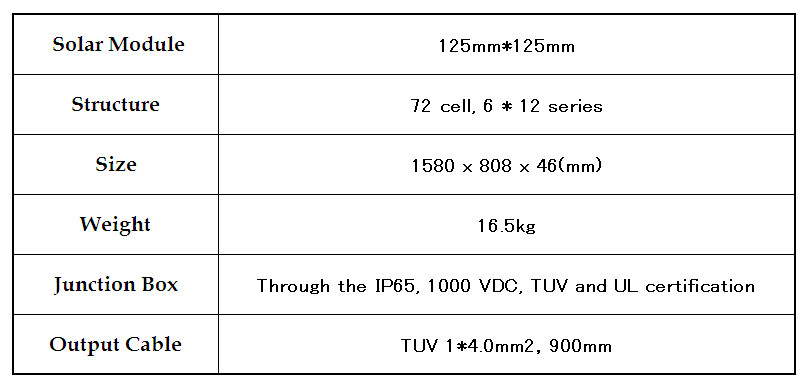
2) Mono-crystalline solar module Electrical Characteristics
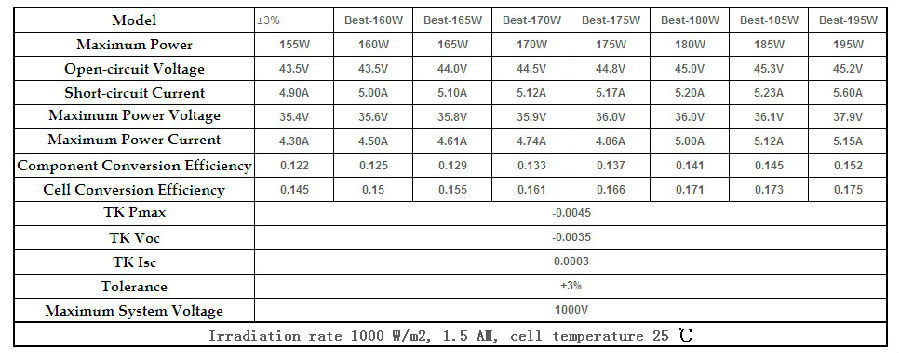
3) Mono-crystalline solar module component diagram
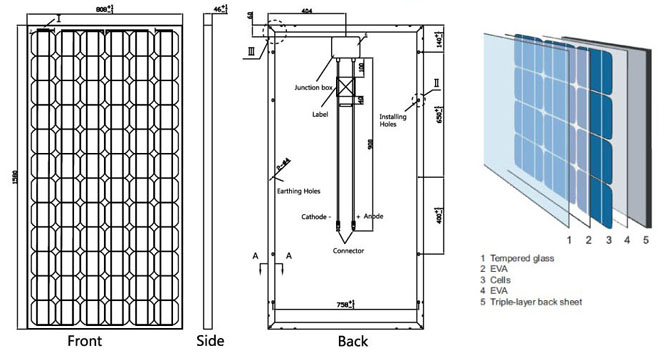
4) Mono-crystalline solar module IV curve
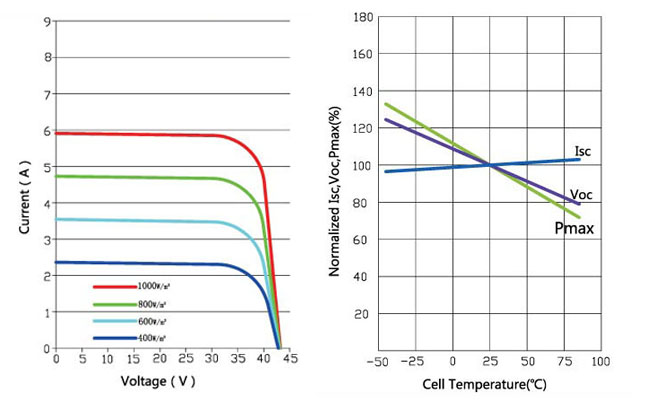
8. FAQ:
Q1: Why buy Materials & Equipment from OKorder.com?
A: All products offered byOKorder.com are carefully selected from China's most reliable manufacturing enterprises. Through its ISO certifications, OKorder.com adheres to the highest standards and a commitment to supply chain safety and customer satisfaction.
Q2: What is a solar PV module?
A: A solar PV module consists of many solar cells that are connected together (typically in series) and packaged in a frame (typically made of aluminum).
Q3: What are the advantages and disadvantages of monocrystalline solar PV modules?
A: Monocrystalline solar PV modules are the most efficient type of solar PV modules, with the exception of CdTe thin film solar PV modules. As a result, monocrystalline solar PV modules are more expensive when compared to almost all other types of solar PV modules.
Q4: What is the typical service life of a solar PV module?
A: The typical life of a PV module is 25 years. However, superior quality PV modules boast service lives up to 35-40 years (electrical generating capacity is often reduced, however by that point).
Q5: What certifications do you have?
A: We are specialized in the photovoltaic field, with a focus on solar cells, modules and photovoltaic power generation systems. We employ advanced monocrystalline and polycrystalline silicon solar cell manufacturing equipment, producing highly efficient and reliable products sold in Europe, the Americas and Australia. Our company has passed ISO9001 quality management system certification, and our products have obtained TUV-IEC, CE, UL certification.
Q6: How do we guarantee the quality of our products?
A: We have established an advanced quality management system which conducts strict quality tests at every step, from raw materials to the final product. At the same time, we provide extensive follow-up service assurances as required.
Q7: How long can we receive the product after purchase?
A: Within three days of placing an order, we will begin production. The specific shipping date is dependent upon international and government factors, but is typically 7 to 10 workdays.
- Q: Are there any government incentives or tax credits for installing solar panels?
- Yes, there are government incentives and tax credits available for installing solar panels. These incentives vary by country and region, but they often include federal tax credits, state or provincial rebates, and local grants or loans. These financial incentives aim to promote the adoption of renewable energy sources and help offset the initial costs of installing solar panels. It is advisable to consult local authorities or renewable energy organizations to learn about specific incentives available in your area.
- Q: what size would the panel be/ I live in the caribbean so plenty of sun!
- a minimum of 4000 watts, 5KW may well be extra desirable and you do choose an inverter and batteries and in all hazard a variable frequency force till the pump motor is rated for DC which I doubt. suited answer is touch a close-by electrician to do the artwork.
- Q: How do solar panels perform in extreme temperatures?
- Solar panels can still generate electricity in extreme temperatures, but their performance may be slightly affected. High temperatures can cause a decrease in efficiency, as the heat reduces the panel's ability to convert sunlight into electricity. However, modern solar panels are designed to withstand a wide range of temperatures, and their efficiency losses are generally minimal. In extremely cold temperatures, solar panels can actually perform slightly better due to the improved conductivity of the solar cells. Overall, while extreme temperatures can have a small impact on solar panel performance, they are still a reliable and efficient source of renewable energy in various weather conditions.
- Q: Can solar panels be used in areas with high levels of air turbulence or strong winds?
- Yes, solar panels can be used in areas with high levels of air turbulence or strong winds. However, it is essential to ensure that the solar panel installation is designed and mounted properly to withstand these conditions. The panels should be securely fastened and angled correctly to minimize the impact of strong winds. Additionally, using durable and wind-resistant materials for the solar panel structure is important to ensure their longevity in such areas.
- Q: Can I add more solar panel let say up to 200 watt and adding two 2 volts battery using the same charges controller and power inverter?
- That charge controller is notoriously cheap and burns up easily. If you are going add solar panels, also buy another charge controller to go with them. They can both be connected to the same battery bank. I don't believe the kit comes with batteries, so you would buy whatever size 2V battery bank your power requirements call for. The size of the inverter depends entirely on what you are going to power with it, not the size of the panel array. As long as you are not powering anything that is over the 300W rating, you don't need a new one. Just be sure to check the details of the inverter, is it 300W continuous, or can it handle up to a 300W surge? Also, it's a modified sine wave inverter instead of a pure sine wave inverter, so don't plug any sensitive electronics into it. They may not work, or you may get a buzz or hum from it.
- Q: We are thinking about useing solar panels for our house.Does anyone know about solar panels? If so could you please tell me some information on them,and the cost for a home,to install them.
- Solar electricity systems can save you more money. Want to know more features about Solar Panels Companies? Contact us today for more details.
- Q: Can solar panels be used in areas with high levels of vandalism?
- Solar panels can be used in areas with high levels of vandalism, but additional precautions may need to be taken to protect them from potential damage.
- Q: How much energy can a solar panel produce in a day?
- The amount of energy a solar panel can produce in a day depends on various factors such as the size and efficiency of the panel, the location and angle of installation, weather conditions, and sunlight availability. On average, a typical solar panel can generate between 4 to 6 kilowatt-hours (kWh) of electricity per day. However, this can vary significantly, and larger, more efficient panels in optimal conditions can produce even more energy.
- Q: Can solar panels be used to power an emergency response center?
- Yes, solar panels can be used to power an emergency response center. Solar panels can generate electricity from sunlight, which can then be stored in batteries or directly used to power the center's equipment and infrastructure. This renewable energy source can provide a reliable and sustainable power supply, making an emergency response center less dependent on traditional energy sources during critical situations.
- Q: Can solar panels be installed on a data storage facility or server farm?
- Yes, solar panels can be installed on a data storage facility or server farm. It is a viable option to harness renewable energy and reduce the carbon footprint of these energy-intensive operations.
Send your message to us
Mono-Crystalline Solar Panels for Farms - 72 Series
- Loading Port:
- Ningbo
- Payment Terms:
- TT or LC
- Min Order Qty:
- 2000 watt
- Supply Capability:
- 2000000 watt/month
OKorder Service Pledge
OKorder Financial Service
Similar products
Hot products
Hot Searches
Related keywords
